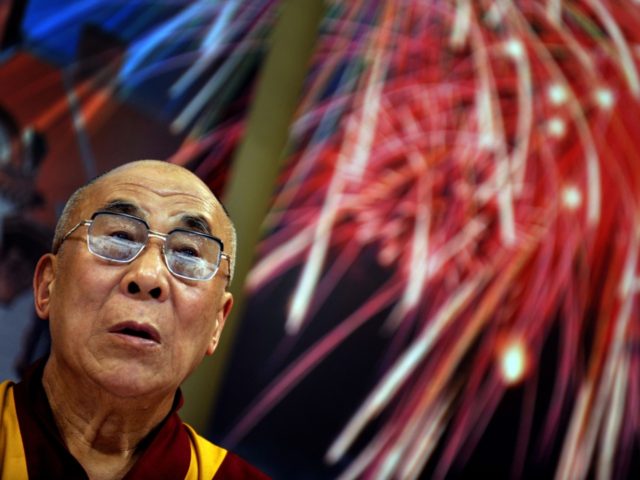The Dalai Lama said Wednesday that if he is succeeded in his role as Buddhist leader by a woman she must be “attractive,” despite receiving pushback for similar comments he made in 2015.
In an extensive interview with the BBC, South Asia correspondent Rajini Vaidyanathan asked the Dalai Lama if he understood why his earlier remarks had offended women, at which point the guru seemed to double down on his comments.
The dialogue went like this:
– Vaidyanathan: “You once said that you would be open to a female successor.”
– Dalai Lama: “That also possible.”
– Vaidyanathan: “You also told one of my colleagues that that female must be attractive. Otherwise, it’s not much use.”
– Dala Lama (giggling): “Yes, that is the one time.”
– Vaidyanathan: “Can you see why that comment upset a lot of women?”
– Dalai Lama: “If female Dalai Lama comes then she should be more attractive. If female Dalai Lama [makes ugly face], then people I think prefer not see her, that face.”
– Vaidyanathan: “Yes, a lot of women would say that’s objectifying women, and it’s about who you are inside, isn’t it?”
– Dalai Lama: “Yes, I think both.”
Back in 2015, the exiled winner of the Nobel Peace Prize who fled Tibet for India in 1959 when China took control said that if his successor is a woman she must be “very, very attractive” because otherwise she is “not much use.”
In that interview with the BBC, the Dalai Lama also recalled telling a French journalist a decade or so earlier that having a female Dalai Lama was important because women have a greater “biological” capacity “to show affection … compassion.”
“I think female[s] should take more important role and then – I told the reporter – if a female does come her face should be very, very attractive,” the Buddhist leader said.
Last March, the Dalai Lama said that more women are needed in leadership roles because they are more compassionate than men, who are valued instead for their ability to “kill.”
“Women have been shown to be more sensitive to others’ suffering, whereas, warriors celebrated for killing their opponents are almost always men,” he tweeted in celebration of International Women’s Day celebrated on March 8.
“We need to see more women in leadership roles and more closely involved in education about compassion,” he said.

COMMENTS
Please let us know if you're having issues with commenting.